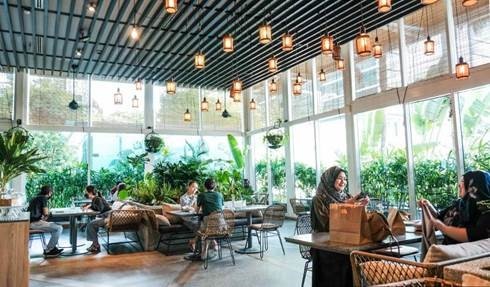
PETALING JAYA: While dining in at food and beverage outlets has been back on the menu for over a month, not all operators are eager to reopen their doors just yet.
Concerned that they could yet be forced to shutter their shops if Covid-19 cases are reported at their premises, some are hanging on to the business model which has served them well during the pandemic – takeaways and deliveries.
One food operator at Taman Desa calculated the turnover he would see based on his tables, average spend per customer, number of customers with social distancing and labour costs against the cost of potentially having to close for 10 to 14 days if the restaurant reported a positive case – and decided it was “not favourable” for him to resume dine-in operations.
“I’ve never opened since dine-in was allowed,” he told FMT.
“The risk of shutting down for up to 14 days with zero revenue, and having to spend on testing and sanitising, is enough to send chills down my spine.
“We have young kids at home, and that’s also one of the reasons we don’t want to take the risk of opening up. I’m working to change my business model,” he said.
He was, however, open to having dine-in customers once the Covid-19 pandemic subsides.
Meanwhile, the owner of a cafe at Old Klang Road told FMT that she faced the same dilemma.
Sally Low said it would be difficult for her to keep up with the cost of labour and overhead expenses such as rent, if her small business had to close for a fortnight due to a Covid-19 outbreak.
“For now, I am all right with just limiting my business to takeaways,” she said.
Renyi Chin, though, has opted to reopen for dine-in. The co-founder of myBurgerLab said the industry was currently in a “transition phase”, notably with the price of food increasing.
He also said it was “too early” to tell if operators should be fixated on one particular model of doing business as the economy slowly reopens.
“Of course, we need to be aware of trends and what’s happening on the ground,” he said
Huen Su San, who manages 10 F&B outlets and two central kitchens, said while the dine-in business had yet to fully recover, she was unsure whether this meant the industry would shift to a delivery/takeaway model.
Others like Tony Lika, the CEO of cloud kitchen operator Foodle, noted that cloud kitchens help add value by providing commercial facilities in exchange for zero capital expenditure and significantly lower operating costs, compared to brick-and-mortar stores.
Lika said the current F&B model mostly favours larger chains which can enjoy economies of scale, while operators selling “pretty much” the same type of food to the same client base are finding it hard to sustain themselves.
Pointing out how the F&B industry has traditionally relied on the brick-and-mortar model – with deliveries and takeouts only being commonplace over the last several years – he said that alternative models, such as cloud kitchens, should be seen as a viable third option.
“Before this, one had two options: Open a brick and mortar store, or don’t open a restaurant at all.
“Now there’s a very strong, sustainable, profitable model offered by cloud kitchens.”
Cloud kitchens are central places where all kinds of food are prepared to be delivered to the doorsteps of online customers.
“Relative to the sales they generate, cloud kitchens offer very good margins for those that have optimised themselves,” Lika said.
Source: https://www.freemalaysiatoday.com/category/nation/2021/10/13/pandemics-lessons-for-fb-industry-to-take-away/

